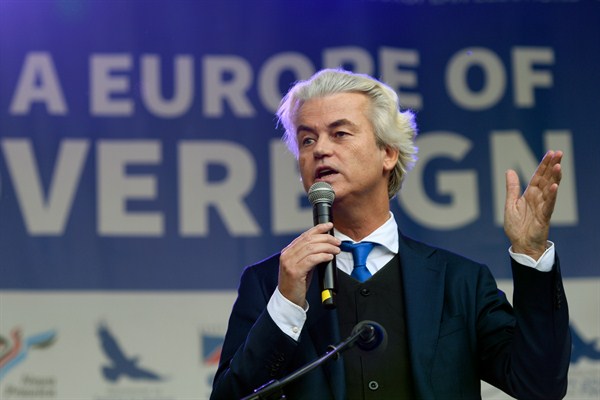AMSTERDAM—It wasn’t long ago that the far right was surging in the Netherlands. Anti-immigrant politicians were dominating the political debate and energizing their followers with an intensity that traditional mainstream politicians appeared incapable of matching. The Dutch seemed on track to move away from their near-legendary penchant for compromise, ready to trade it in for the kind of resurgent nationalism seen in other parts of Europe and across the Atlantic. But then something unexpected happened. The energy suddenly drained out of this far-right populist movement.
The Dutch far right has had at least two high points in recent years. In 2016, Geert Wilders’ anti-immigrant Party for Freedom, or PVV, was leading in the polls, threatening to become the biggest party in parliament. It ultimately became the second largest, but more recently, in March, a new nationalist party, the Forum for Democracy, or FvD, sent shockwaves across the political landscape by winning more votes than any other party in provincial elections, making it the biggest party in the Dutch Senate.
But in the past few months, things have gone downhill fast for the far right. Just this week, the leader of the FvD, Thierry Baudet, picked up a local newspaper and discovered, to his apparent surprise, that two senators from his party had decided to defect. Adding to the surprise, one of the defectors, Jeroen de Vries, is Baudet’s former spokesperson. The two senators, according to the report in the popular daily De Telegraaf, which none of the politicians have denied, were planning to join forces with a more prominent FvD exile, Henk Otten. Although he co-founded the party along with Baudet in late 2016, Otten was expelled last month on charges of corruption, which he denies. Now nothing short of Baudet’s enemy, he is reportedly planning to form a new party and a new bloc in the upper house of parliament.

